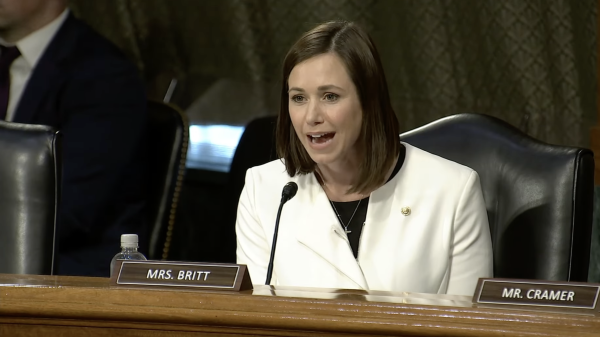By Brandon Moseley
Alabama Political Reporter
The first line of defense against all manners of threats this nation faces are the threat detection dogs. Monday, U.S. Sen. Doug Jones, D-Alabama, announced that he has secured support in the Senate Homeland Security and Governmental Affairs Committee for the Canine Detection Research and Development Act.
Auburn University College of Veterinary Medicine is poised to fill the need for threat-detecting canines.
The Canine Detection Research and Development Act legislation isa bipartisan proposal to establish a new initiative that will set uniform standards for and help address the shortage of trained threat-detection canines in the United States. Jones successfully added the proposal to the Department of Homeland Security (DHS) Authorization Act, which recently received committee approval in the Senate.
“Highly trained canines are the most effective tools we have to detect existing and emerging threats to our national security, but unfortunately there is a shortage of these working dogs and no organized programs to increase their numbers,” Jones said. “My bill authorizes a research and development program to address this critical homeland security and public safety need, which I believe can be most effectively filled by the talented team at Auburn University’s College of Veterinary Medicine. Auburn is at the forefront of this field and stands ready to meet this mission head-on.”
Jones is a member of the Senate Homeland Security and Governmental Affairs Committee.
Experts have warned that the U.S. is facing a shortage of threat-detecting dogs, who are trained to identify a variety of security threats in venues ranging from combat environments to shopping malls and airports, in addition to finding contraband like illegal drugs and even victims of human trafficking.
The experts say that the canines are uniquely qualified because they detect these threats with greater agility and success than robots designed to do the same work. Senator Jones’ legislation will help address the need for increasingly sophisticated and rapidly evolving tactical applications of detector dogs and will also help to produce dogs that meet defined standards of operational competence.
“Man’s best friend is also our best defense. We thank Senator Jones for his advocacy of expanded canine detection research and development. Auburn’s canine performance sciences program has long been a leader in canine detection technology and we look forward to continuing our work to provide the nation with the best detector dogs in the world,” said Dr. Steven Leath, president of Auburn University.
Auburn University has established partnerships with DHS (Department of Homeland Security), the Federal Bureau of Investigation (FBI), U.S. Department of Defense, and other federal agencies as well as other canine research and breeding experts, and is poised to provide the needed human capital and leadership to fulfill this important mission.
Jones was elected in a special election on December 12, defeating Republican Roy Moore in the special general election.




















































